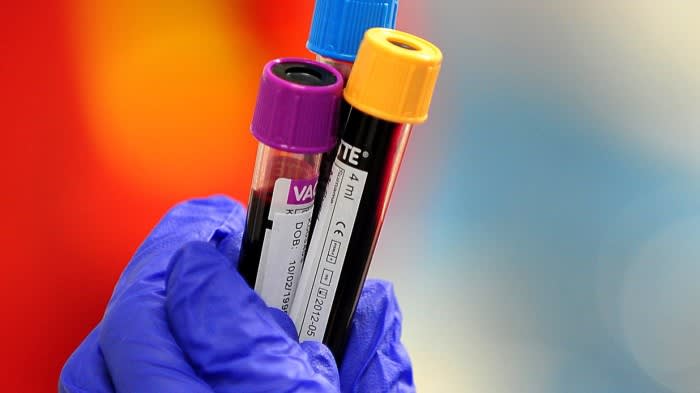Unlock the Editor’s Digest for free
Roula Khalaf, Editor of the FT, selects her favourite stories in this weekly newsletter.
A widely used screening test for prostate cancer is over-diagnosing insignificant cases while still missing some of the most aggressive cancers, according to the largest study of its kind.
The trial, which involved more than 400,000 UK men aged 50-69, tested the effect of the Prostate-Specific Antigen “PSA” blood test, which is commonly used to decide when to send men with urinary symptoms for further checks.
Half of the study’s participants received a single invitation for a PSA test. After 15 years there was little difference in the number of men who died from prostate cancer, whether or not they had received the test, according to the research published in the Journal of the American Medical Association on Saturday.
An estimated one in six cancers found by the single PSA screening were over-diagnosed and would not have gone on to cause problems.
Professor Richard Martin, lead author and Cancer Research UK scientist at the University of Bristol, said: “The key takeaway is that the small reduction in prostate cancer deaths by using the test to screen healthy men does not outweigh the potential harms.”
Nearly seven men out of every 1,000 in the group invited for screening had died from prostate cancer, compared with nearly eight men out of every 1,000 in the group which had not.
Some men were having invasive treatment that they did not need many years earlier than they would have done without screening. Yet the test also failed to spot some cancers that did require treatment, he suggested.
“We need to find better ways to spot aggressive prostate cancers, so we can treat them early,” Martin added.
Pointing to the risks of unnecessary treatment, Cancer Research UK said over-diagnosis could have “a negative psychological impact”, and treatment of prostate cancer could also cause physical side effects including the possibility of infection following a biopsy, erectile dysfunction, and bladder and bowel problems.
The research charity noted there had been improvements in diagnosing and treating the disease in the years since the latest trial, conducted by the universities of Bristol, Oxford and Cambridge, began. These included the introduction of a magnetic resonance imaging scan (MRI) before a biopsy.
Dr Matthew Hobbs, director of research at Prostate Cancer UK, said such changes had “made the process safer and more accurate” but better evidence was needed to understand their full impact.
He added that the results from the latest trial were “extremely significant” because they backed up similar findings from an earlier study, conducted in eight European countries and published in 2019.
The charity has launched a £42mn trial “so that eventually each man with aggressive prostate cancer gets an early, accurate diagnosis”, he added.
Prostate cancer causes 12,000 deaths a year, making it the second biggest cancer killer of men in the UK. There is currently no national screening programme for the disease.

Sarah Carter is a health and wellness expert residing in the UK. With a background in healthcare, she offers evidence-based advice on fitness, nutrition, and mental well-being, promoting healthier living for readers.








